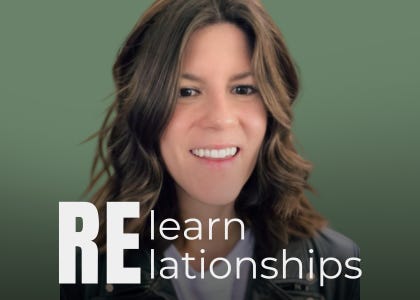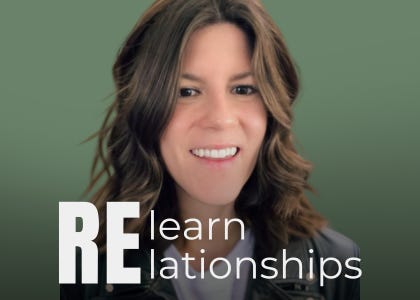WORKSHOP: How to Face Conflict Without Running Away
Become a Paid subscriber to attend HERE.
OR
Buy a class pass HERE.
In this episode of Relearn Relationships, we explore emotional reactivity in overthinkers who internalize emotions rather than express them. Through relatable stories and examples, we’ll look at how high emotional reactivity impacts our relationships and how it might show up differently for those who appear calm on the outside but experience intense emotions within. This episode unpacks the internal struggles of overthinkers, the impact of unexpressed emotions, and the journey toward achieving true emotional regulation and peace.
Key Takeaways:
Emotional Reactivity
Emotional reactivity can look like an adult “tantrum”—but it can also be quieter, showing up as mental rehearsal or overthinking. Even those who seem calm outwardly may struggle with high emotional reactivity internally, feeling anxious, guarded, or deeply hurt while appearing composed.
Signs of Internalized Emotional Turmoil
People who internalize emotions often struggle with anxiety and overthinking, leading to mental “stories” or “what-ifs.” Rather than outwardly reacting, they may withdraw or put up emotional walls to feel safe.
The Importance of Developing Internal Stability
When we regulate ourselves emotionally, external events don’t shake us as easily, helping us build resilience and peace in relationships.
Go Deeper:
If today’s episode resonated with you, subscribe to Relearn Relationships for more insights into navigating emotional challenges in relationships.
Thank you for subscribing. Share this episode.














Share this post